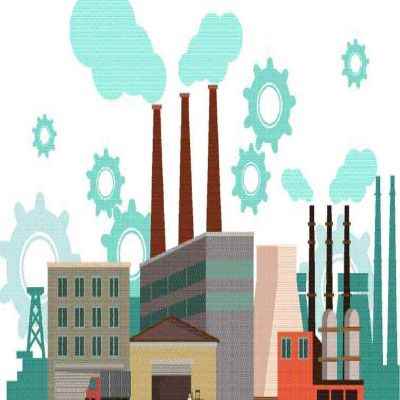With a view to overcome the shortcomings experienced on account of the multiplicity of controls and clearances; absence of world-class infrastructure, and an unstable fiscal regime and with a view to attract larger foreign investments in India, the Special Economic Zones (SEZs) Policy was announced in April 2000.

Many Policies were announced at different point of time to overcome various shortcomings of trade and finances. They also look to forward to attract larger foreign investments in India.
The SEZ Act aims to generate additional economic activity, promote exports of goods and services, promote investment from domestic and foreign sources, generate employment opportunities and developing infrastructure facilities.
In addition developing Special Economic Zones would in turn attract domestic and foreign investment, increase the employment opportunity, exports and infrastructural developments.
SEZ is a home to many service related to IT, Biotechnology, Research & Development, Health Care, Finance, Education, Entertainment, Leisure & Recreation, Sports & Related Activities, Retail, Business Solutions and Warehousing & Trade.
Activity in SEZ
Manufacturing / Trading related activities of SEZ include manufacture and trade of Apparel, Garments & Leather, Automobile and Auto Components, Engineering - Light, Heavy & Application, Pharmaceuticals, Food Processing, Telecom Equipment, Computer Hardware & micro- electronics, Consumer Electronics & Appliances, Gems, Jewellery & Diamonds, Wood, Rubber, Plastic & Leather Products & Handicrafts.SEZ is a home to many service related to IT, Biotechnology, Research & Development, Health Care, Finance, Education, Entertainment, Leisure & Recreation, Sports & Related Activities, Retail, Business Solutions and Warehousing & Trade.
Type of SEZ
Special Economic Zone are classified into four specialized zones, namely,- Free trading and warehousing zone facilitate import of goods and services freely to carry out trade transactions in free currency.
- Special Economic Zone for multi-product is the zone where the units are set up for manufacturing or trading and warehousing or rendering of two or more goods in a sector.
- Special Economic Zone for specific sector is meant exclusively for one or more products or services in a particular sector.
- Special Economic Zone in a port or airport means a Special Economic Zone in an existing port or airport for Special Economic Zone.
Administrative set up
The functioning of the SEZs is governed by a three tier administrative set up. The Board of Approval is the apex body and is headed by the Secretary, Department of Commerce.
The Approval Committee at the Zone level deals with approval of units in the SEZs and other related issues. Each Zone is headed by a Development Commissioner, who is ex-officio chairperson of the Approval Committee.
Once an SEZ has been approved by the Board of Approval and Central Government has notified the area of the SEZ, units are allowed to be set up in the SEZ.
Incentives and facilities offered to the SEZs
The units in SEZs are given many incentives and facilities to attract domestic as well as foreign investment.
They can be summed up as:-
They can be summed up as:-
- Duty free import/domestic procurement of goods for development, operation and maintenance of SEZ units
- 100% Income Tax exemption on export income for SEZ units under Section 10AA of the Income Tax Act for first 5 years, 50% for next 5 years thereafter and 50% of the ploughed back export profit for next 5 years. (Sunset Clause for Units will become effective from 01.04.2020)
- Exemption from Minimum Alternate Tax (MAT) under section 115JB of the Income Tax Act. (withdrawn w.e.f. 1.4.2012)
- Exemption from Central Sales Tax, Exemption from Service Tax and Exemption from State sales tax. These have now subsumed into GST and supplies to SEZs are zero rated under IGST Act, 2017.
- Other levies as imposed by the respective State Governments.
- Single window clearance for Central and State level approvals.
- Exemption from customs/excise duties for development of SEZs for authorized operations approved by the BOA.
- Income Tax exemption on income derived from the business of development of the SEZ in a block of 10 years in 15 years under Section 80-IAB of the Income Tax Act. (Sunset Clause for Developers has become effective from 01.04.2017)
- Exemption from Minimum Alternate Tax (MAT) under Section 115 JB of the Income Tax Act. (withdrawn w.e.f. 1.4.2012)
- Exemption from Dividend Distribution Tax (DDT) under Section 115O of the Income Tax Act. (withdrawn w.e.f. 1.6.2011)
- Exemption from Central Sales Tax (CST).
- Exemption from Service Tax (Section 7, 26 and Second Schedule of the SEZ Act).




